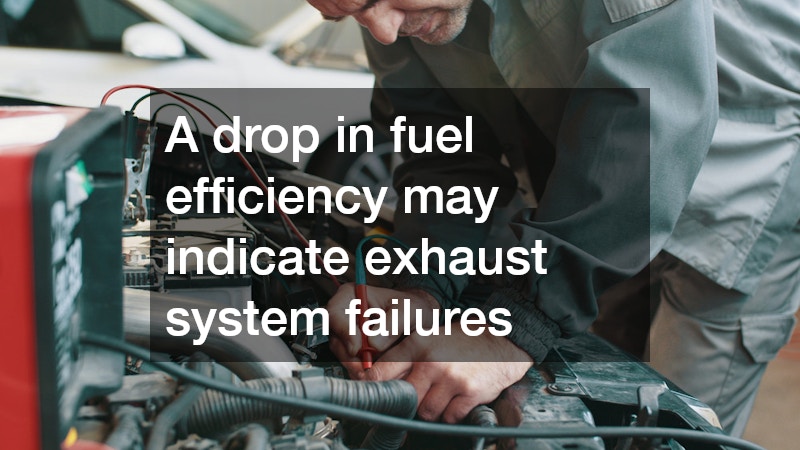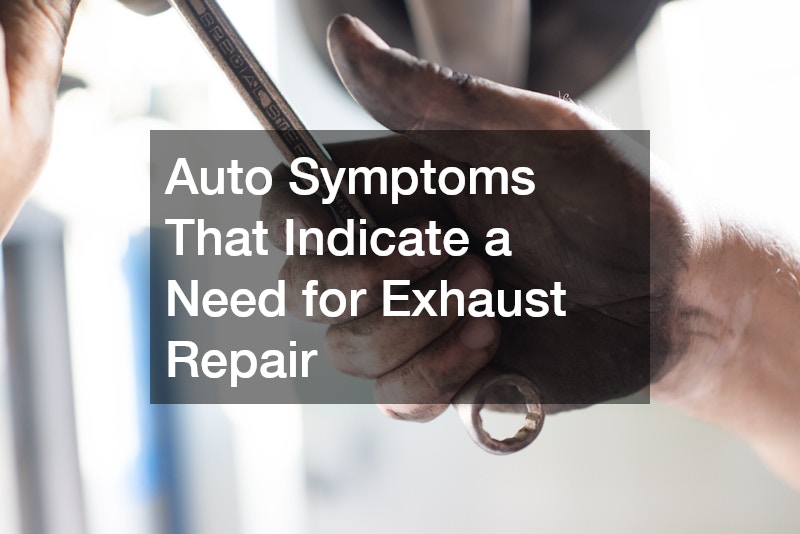Explore common symptoms that indicate your vehicle may need exhaust repair. Recognizing these warning signs can help protect your vehicle’s performance and overall health, ultimately saving you time and money.
What Are the Common Signs of Exhaust Leaks?
Exhaust leaks can lead to various performance issues, so it’s crucial to be aware of the signs that your vehicle may exhibit. Common indicators include a noticeable decrease in power, unusual vibrations, and even changes in engine noise.
Understanding these symptoms can help you address exhaust system issues before they worsen.
When there’s an exhaust leak, it can create vacuum pressure issues within the engine. This can lead to poor fuel combustion and further exacerbate performance issues. Additionally, an exhaust leak can result in a more complex set of problems, as it may affect the air-fuel mixture and the efficiency of the catalytic converter.
It’s also essential to consider how exhaust leak symptoms might impact your driving experience. Many drivers report feeling a lack of responsiveness when accelerating or experiencing jerking movements, which can make driving unsafe. By recognizing these signs early on, you can seek professional assistance to avoid serious mishaps on the road.
How Does a Foul Smell Indicate Exhaust Issues?
A strong, unpleasant smell inside or outside your vehicle could signal exhaust problems that require immediate attention. The fumes produced by your vehicle can be detrimental to both your health and the environment, making it vital to identify any foul odors. If you notice a smell akin to rotten eggs, this could indicate a failing catalytic converter.
Furthermore, a burning smell may suggest that other components of the exhaust system, such as gaskets or seals, are overheating or breaking down. This not only poses a hazard to your vehicle’s performance but can also lead to costly repairs if left unattended. Identifying and addressing these odors is crucial in maintaining a safe driving environment.
Your vehicle’s exhaust system is responsible for guiding harmful emissions away from the engine, so any foul smells mean there could be a significant issue needing prompt repair. Taking immediate action ensures that you’re not just preserving your car’s functionality but also safeguarding your well-being while driving.
Why Is Your Vehicle Making Unusual Noises?
Unusual noises from the exhaust system can indicate multiple underlying issues that need attention. If you hear loud rumbling, hissing, or popping sounds, these could suggest loose, damaged, or corroded parts within the exhaust system. Recognizing these noises early allows you to prevent further damage.
A rattling noise may suggest that interior components like the catalytic converter or muffler have become loose. This kind of problem can lead to decreased engine performance if not addressed. Paying close attention to the sounds your vehicle makes can provide vital clues concerning the health of your exhaust system.
Moreover, the type of noise can help diagnose the extent of the damage. For example, high-pitched squeals may signal exhaust leak issues, which can lead to an unpleasant driving experience. By being attuned to these sounds, drivers can seek necessary repairs promptly, ensuring the vehicle remains safe and efficient on the road.
How Can Reduced Fuel Efficiency Point to Exhaust Repair Needs?
A drop in fuel efficiency may indicate exhaust system failures that require examination. If you notice that you’re filling up your gas tank more frequently than before, it’s time to investigate potential causes. Exhaust system issues can alter the air-fuel mixture, leading to suboptimal combustion and increased fuel consumption.
Moreover, reduced fuel efficiency can also cause more significant problems within your vehicle’s engine. This may lead to higher emissions and potential damage to other components. Consistently poor fuel economy warrants closer inspection of the entire exhaust system.
Being vigilant about fuel efficiency not only saves you money but also provides insights into the overall functionality of your vehicle. Keeping an eye on gas mileage can lead to early detection of exhaust-related issues, ensuring your car operates more effectively and efficiently.
What Does Paint Damage or Rust on the Exhaust System Mean?
Visible rust or peeling paint on the exhaust can be a sign of deeper problems requiring repair. When moisture gets trapped in the exhaust system, it can lead to rust formation, which weakens the structural integrity of the components. Observing signs of corrosion should prompt immediate action to prevent future leaks and potential failure.
Additionally, paint damage can indicate the presence of extreme heat or exhaust leaks. This can be critical since any deterioration of the exhaust system can result in an unsafe driving condition. Monitoring for rust or deteriorated paint should be a regular aspect of vehicle maintenance.
Addressing any signs of rust or paint damage early can save you time and money down the line. Regular checks of your exhaust system will help catch these issues before they lead to costly repairs or dangerous conditions on the road, keeping your vehicle in optimal condition.
Staying aware of these symptoms can help you catch exhaust issues early, ensuring your vehicle remains in optimal condition. Regular maintenance and inspections can help avoid costly repairs down the line. Should you notice any of these signs, don’t hesitate to consult a trusted mechanic for a thorough assessment.




